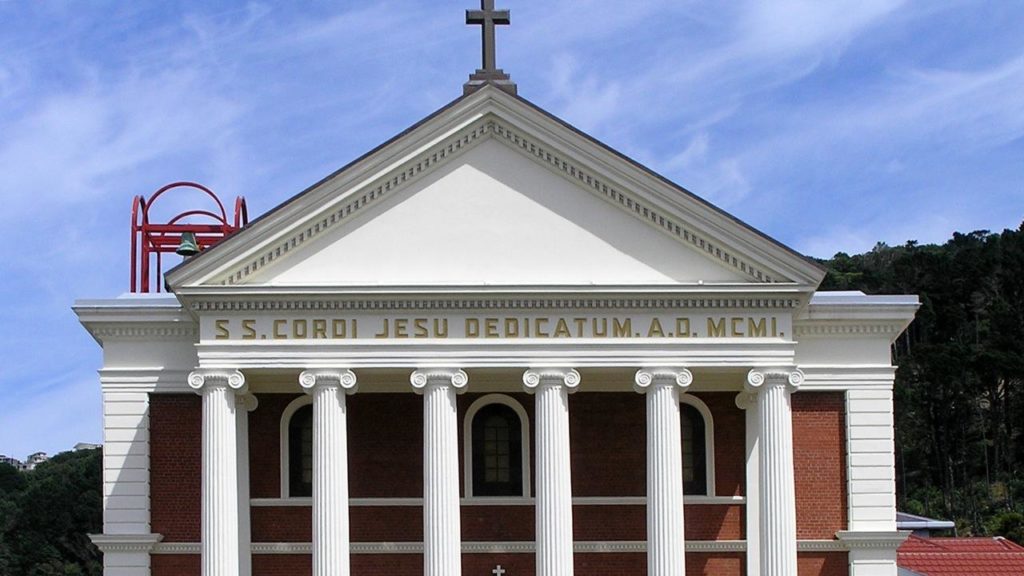An independent assessment of Catholic safeguarding protocols and procedures in New Zealand has identified significant progress in many areas, while also highlighting where more work is needed, according to a statement from the country’s bishops’ conference.
Te Rōpū Tautoko, the group which coordinated the Catholic Church’s engagement with the Royal Commission of Inquiry into Abuse in Care, issued its final report on July 31.
This report came just a week after the Royal Commission of Inquiry into Abuse in Care lambasted the Catholic Church in its report to the abuse of children and vulnerable adults in care facilities.
“The assumed moral authority and trustworthiness of clergy and religious leaders allowed abusers in faith-based institutions to perpetrate abuse and neglect with impunity. Religious beliefs were often used to justify the abuse and neglect, and to silence survivors. Hierarchical and opaque decision-making processes impeded scrutiny and making complaints,” said Arrun Soma, an advisor of the royal commission, to the New Zealand parliament on July 24.
In its report, Te Rōpū Tautoko reviewed safeguarding policies and procedures, and held dozens of face-to-face and online interviews. A team of consultants met with survivors and survivor advocates, Church leaders, safeguarding officers, academics and parishioners to understand the current practice of abuse protection in the Church.
“Considerable work has been invested in promoting plans to ensure compliance and this was found across the safeguarding system. Safeguarding leads have been appointed in each diocese,” the report says.
“There are some inconsistencies in how compliance manifests at parish level due to the level of interest or accountability of the priest, but this could be supplemented by a committed Safeguarding lead with enough time to work with other officers in the parish. All plans reviewed were internal. Despite some examples of good practice, the team saw little intention to link plans with other functions within/across the church or to be transparent and share plans at national and local level,” the report continues.
Te Rōpū Tautoko noted many abuse survivors had personal concerns with the process.
“Some felt they had been further harmed, due to the process not being sufficiently culturally sensitive and survivor-centered, transparent, accountable, and independent to enable justice to take its course. The assessment has identified some evidence to support this,” the report states.
“However, the team did receive positive feedback from a member of a support association who had accompanied two survivors through the APTH process that was described as ‘complex.’ The reflection was that the process had been respectful, and the survivors were happy with the results,” it continues.
Recommendations the report makes include:
- Increased dialogue with survivors and their representatives;
- Regular public reporting on the number of cases reported to Church authorities;
- Ensuring documents are more accessible for people from a range of backgrounds;
- Seeking to undertake investigations in a more timely manner;
- Assessing the Church’s allocation of resources on prevention and on responding to complaints and concerns;
- Ensuring safeguarding is embedded in all roles for those working in the Church.
The head of Te Rōpū Tautoko said the report showed much improvement in facing the abuse crisis in recent times.
“Alongside the critical work being undertaken by the Royal Commission, we wanted to scrutinize our existing standards and strategies and see if they remain fit for purpose,” said Catherine Fyfe, who served as chairperson of Te Rōpū Tautoko.
Fyfe said the report commends the Church for much of the work that has been undertaken in recent years, and points to where some approaches could be better coordinated or where systems, processes and communications need to be enhanced.
“When read in conjunction with the Royal Commission’s findings and recommendations, this report gives the Church a blueprint for further developing our safeguarding policies and procedures,” she said.
Bishop Steve Lowe, president of the New Zealand Catholic Bishops Conference, said it was “encouraging” to read in the Te Rōpū Tautoko report “how a range of approaches are working well, but there are areas where we can take existing efforts further to strengthen them.”
“We are grateful for the dedicated and knowledgeable people we have guiding our safeguarding initiatives, but it is important that we provide them with the appropriate support and promote collaboration and ongoing development for them,” he said.
Congregational Leaders Conference of Aotearoa New Zealand president Father Thomas Rouse said the need for increased dialogue with survivors and their representatives was a recommendation he thought should be highlighted.
“The road towards a sense of truth, of justice, of healing is one we must walk with those who have been abused in our settings,” he said.
“I have seen a major shift in that engagement over the past couple of decades, but we have been challenged to do more – and so we must,” he added.
Lowe said the Church has “much to consider” from the report.
“We are committed to providing the leadership our Church needs at this time to continue the work of creating and maintaining the safest possible environments for all people,” the bishop said.

